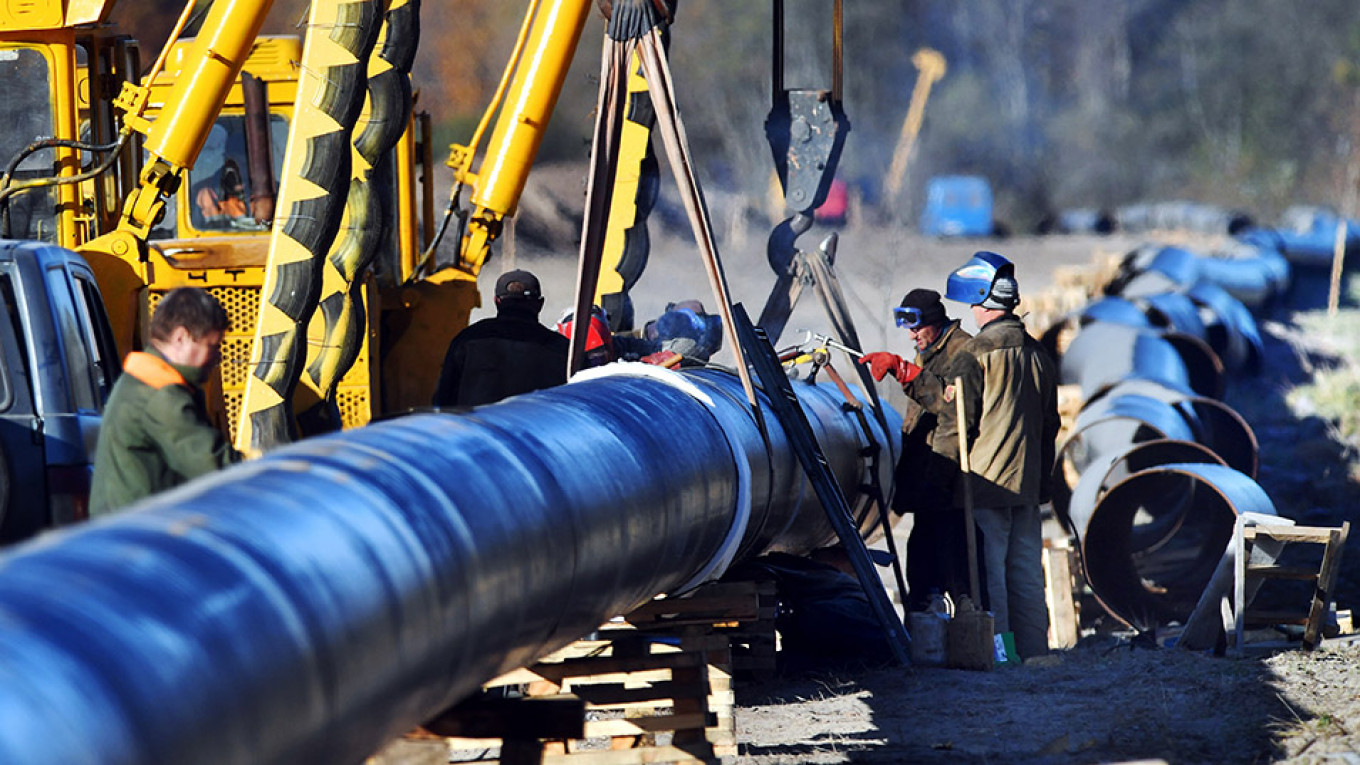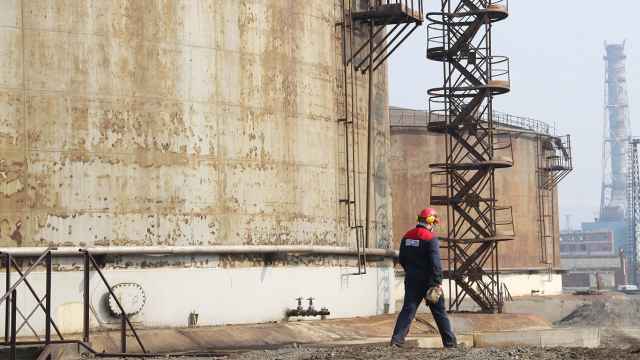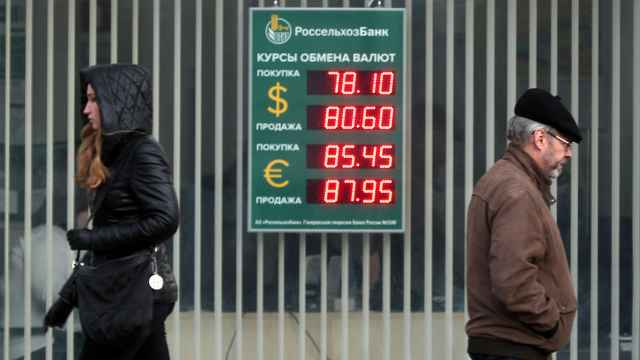Poland and Germany have suspended imports of Russian oil via a major pipeline, citing poor quality and triggering a rare crisis over supply from the world's second-largest crude exporter.
Halting imports from the Druzhba pipeline could trigger legal claims by Western buyers against Russian suppliers, who would in turn seek compensation from Russian pipeline monopoly Transneft, three traders with Western buyers said.
The suspension cuts off a major supply route for Polish refineries owned by Poland’s PKN Orlen and Grupa Lotos, as well as plants in Germany owned by Total, Shell, Eni and Rosneft. Halting supplies of tainted oil, which can corrode refining units, has pushed some refiners to find other supplies. But alternative routes cannot fully fill the shortfall.
The quality issue helped drive oil prices above $75 a barrel for the first time this year on Thursday.
Russia said it planned to start pumping clean fuel to Europe through the pipeline on April 29.
Polish pipeline company Pern told Transneft on Wednesday it was suspending purchases, a letter seen by Reuters showed.
Belarus said neighboring Poland stopped taking deliveries of Russian crude via the Soviet-built pipeline at 8:00 p.m. on Wednesday, Belarus' Belta state news agency reported.
Druzhba, meaning "friendship", can ship up to 1 million barrels per day, or 1 percent of global crude demand. It supplies Poland and Germany via a northern spur and the Czech Republic, Hungary and Slovakia via a southern leg.
The total volume of Russian oil suspended over quality issues is about 700,000 bpd, according to trading sources and based on Reuters calculations.
Halting flows through Belarus and Poland affects customers further west, in Germany. Traders from oil majors operating German refineries said Druzhba flows had stopped.
Two trading sources said the Czech Republic had halted purchases, although the Belarusian pipeline company said customers along the southern leg were still receiving oil.
Poland's biggest refiner PKN Orlen said it would receive oil via sea to the Baltic port of Gdansk until supplies from Russia via pipeline resume. Apart from Russia, PKN imports oil from Saudi Arabia, Norway, Angola and Nigeria.
But traders said the capacity of the pipeline from Gdansk was limited and could not fully compensate for the supply gap.
The quality problem arose last week when an unknown Russian producer contaminated oil with high levels of organic chloride, which is used to boost oil output but must be separated before shipment as it can destroy refining equipment.
Levels of organic chloride have fluctuated at 150-330 parts per million (ppm) instead of the 10-ppm maximum norm and the usual level of around 1-3 ppm, traders with several European energy majors said.
Finding a fix
Russia planned to start pumping clean oil via the pipeline to Europe on April 29, Russian Deputy Prime Minister Dmitry Kozak told Russia's state-run TASS news agency on Thursday.
Kozak earlier said contaminated oil had already been pumped into storage units, Russian news agencies reported. He said he would discuss withdrawing contaminated crude from the pipeline in Belarus and Poland, and said talks with Poland would be held on Friday.
Belarussia's Gomeltransneft Druzhba had earlier said polluted oil, already in the pipeline, could reach Slovakia and Hungary in four to five days.
A Russian energy source familiar with the situation said the problem could be fixed by the end of the week. Two Russian industry sources also said top government officials would meet on Thursday to discuss the problem.
Transneft did not reply to a Reuters request for comment.
Crude contamination is rare in Russia. Traders said oil was last contaminated with high levels of organic chloride about 10 years ago, but at a lower level.
This time, flows have been contaminated along the Druzhba pipeline and from the Baltic port of Ust Luga.
From Ust Luga, at least five contaminated tankers have sailed belonging to oil firms Rosneft, Surgut and Kazakh producers and bought by traders and majors such as Equinor, Vitol, Trafigura, Glencore and Total, trading sources said.
On Thursday, two industry sources said several Western buyers had started rejecting cargoes loading at Ust Luga.
Buyers have filed pre-claims to Russian oil sellers, indicating they might seek compensation, two traders familiar with the developments said.
"No one wants to stop the refineries in Germany. They will be operating at lower capacity now and may import some crude from the sea," a trader with a Western oil major said. "Stopping a refinery is expensive. But repairing it will be even costlier."
A Message from The Moscow Times:
Dear readers,
We are facing unprecedented challenges. Russia's Prosecutor General's Office has designated The Moscow Times as an "undesirable" organization, criminalizing our work and putting our staff at risk of prosecution. This follows our earlier unjust labeling as a "foreign agent."
These actions are direct attempts to silence independent journalism in Russia. The authorities claim our work "discredits the decisions of the Russian leadership." We see things differently: we strive to provide accurate, unbiased reporting on Russia.
We, the journalists of The Moscow Times, refuse to be silenced. But to continue our work, we need your help.
Your support, no matter how small, makes a world of difference. If you can, please support us monthly starting from just $2. It's quick to set up, and every contribution makes a significant impact.
By supporting The Moscow Times, you're defending open, independent journalism in the face of repression. Thank you for standing with us.
Remind me later.






